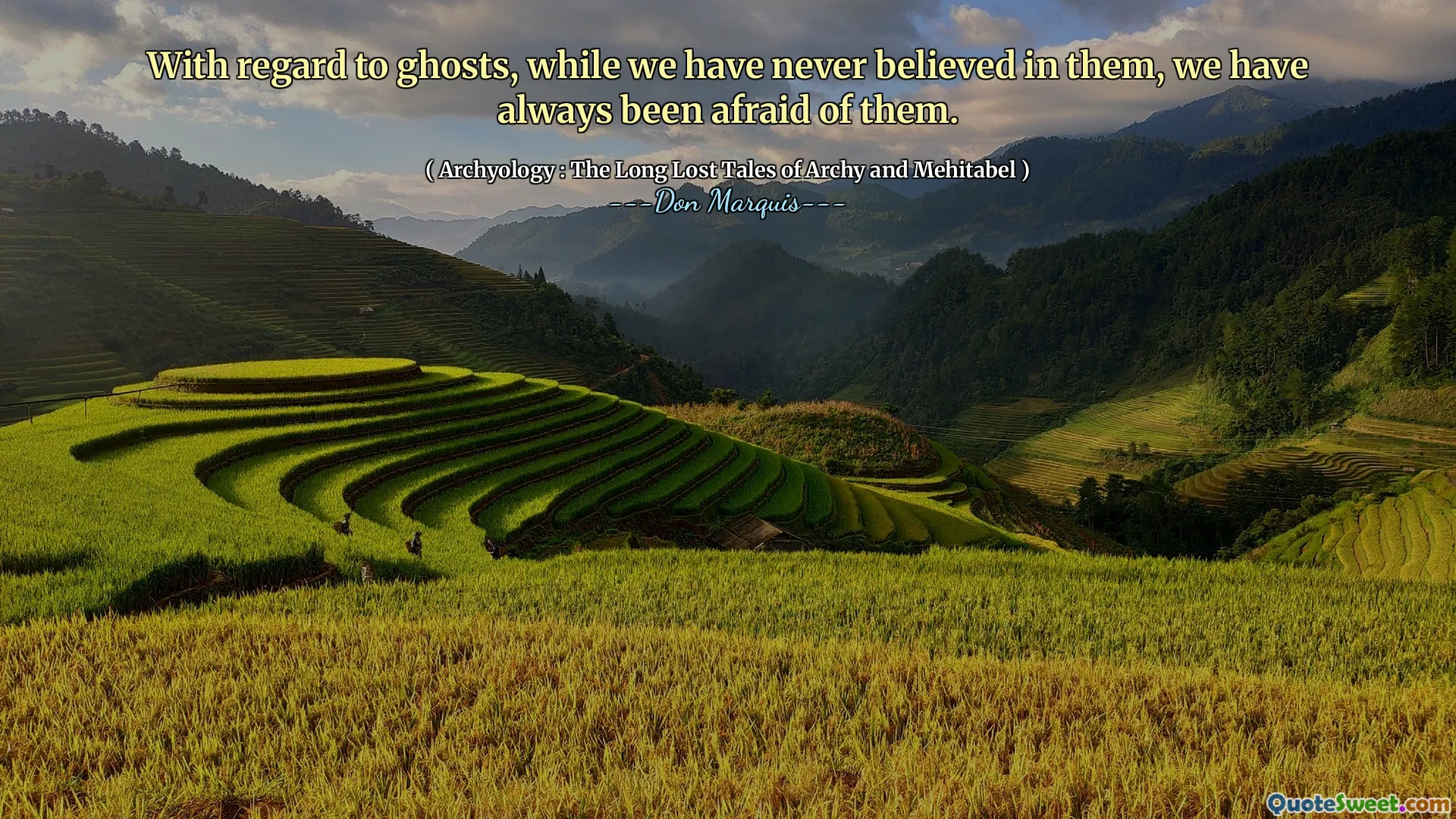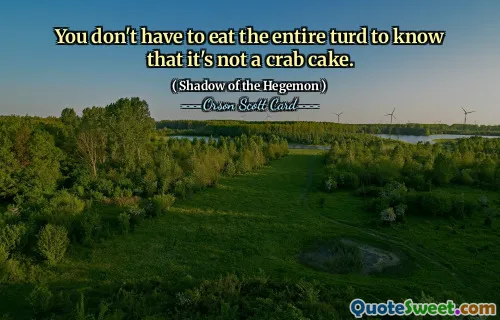
With regard to ghosts, while we have never believed in them, we have always been afraid of them.
This quote highlights a fascinating aspect of human psychology—the distinction between belief and fear. Our innate fears are often rooted in the unknown and the unseen, characteristics that many attribute to ghosts or spirits. Interestingly, even in the absence of genuine belief, the fear persists. This suggests that our fears are not necessarily based on rational conviction but may be ingrained as deep-seated instincts or social constructs. The dichotomy between disbelief and fear reflects the intricate relationship humans have with the supernatural. It underscores how cultural narratives, folklore, and stories can shape our subconscious anxieties without warranting actual belief.
The idea resonates with our tendency to project fears onto entities or concepts that symbolize the unknown or uncontrollable. Ghosts, as cultural archetypes, embody mysteries that challenge our understanding of life and death. They evoke feelings of vulnerability, loss, and the eeriness of eternal uncertainty. Even skeptics, who dismiss the idea of spirits intellectually, can still experience a visceral discomfort when faced with dark, quiet, or unfamiliar environments that could be associated with ghostly presences.
This quote also invites reflection on the nature of fear itself—it is often more about the anticipation of danger or the fear of mortality, than about the actual existence of threats. Our fears serve as mechanisms for survival, yet they can be disproportionately amplified by stories and assumptions. Ultimately, it is fascinating how belief and fear can diverge: disbelief in ghosts does not necessarily eliminate the discomfort they evoke.
Such insights shed light on the human condition—our persistent fear of the unknown exists independently of rational belief, revealing the complex layers of our emotional and cultural fabric.


